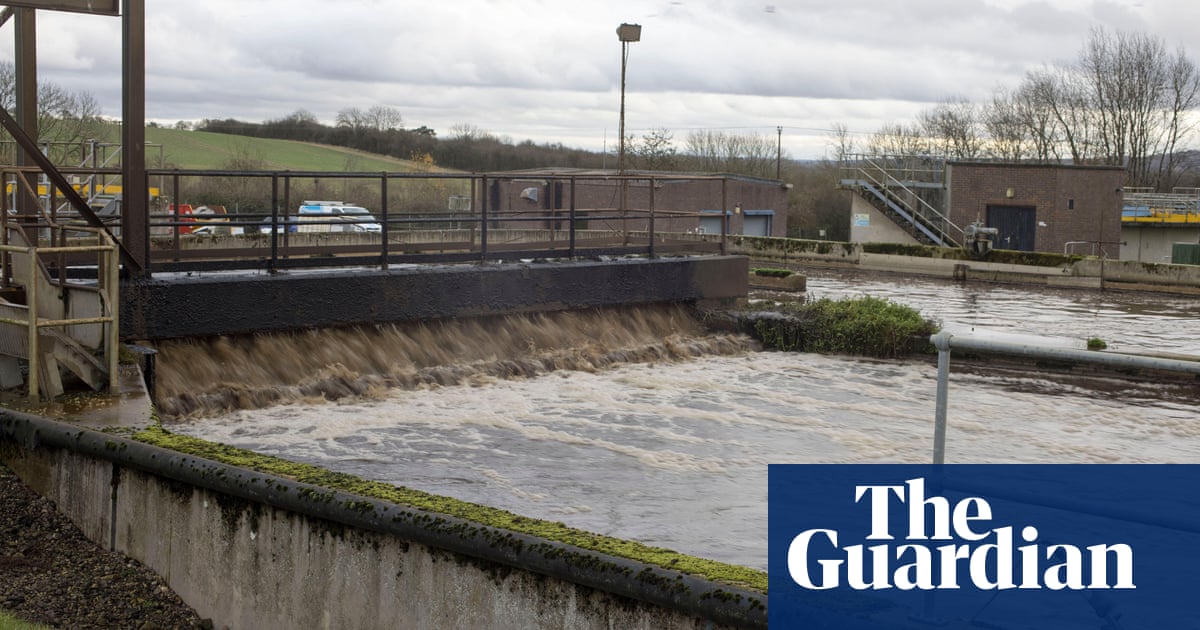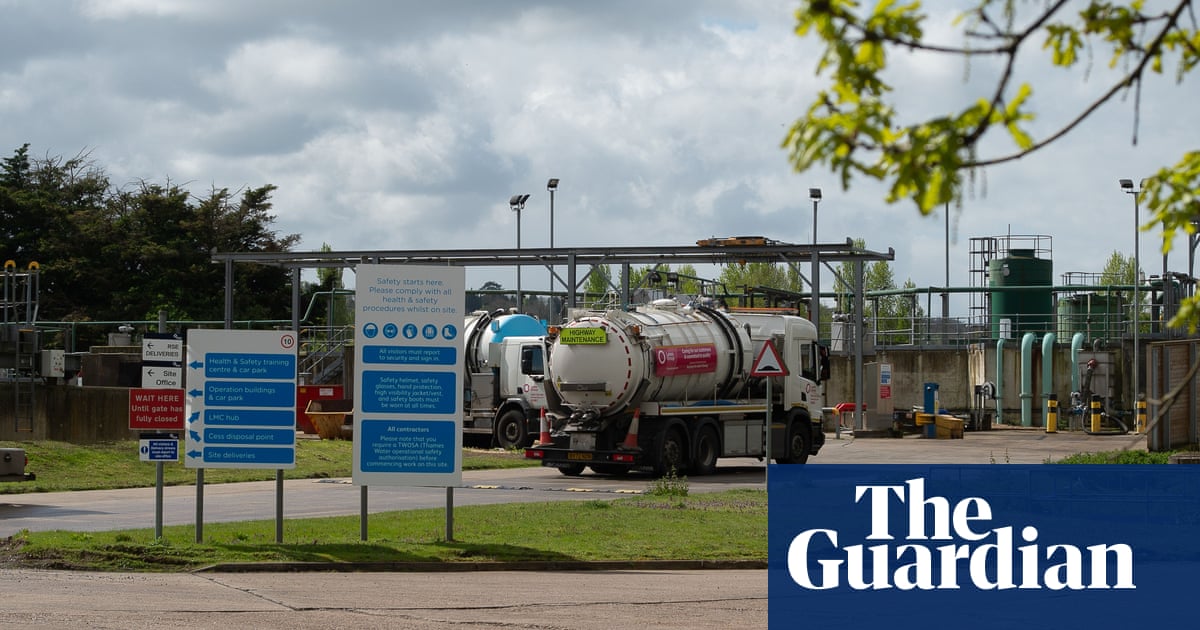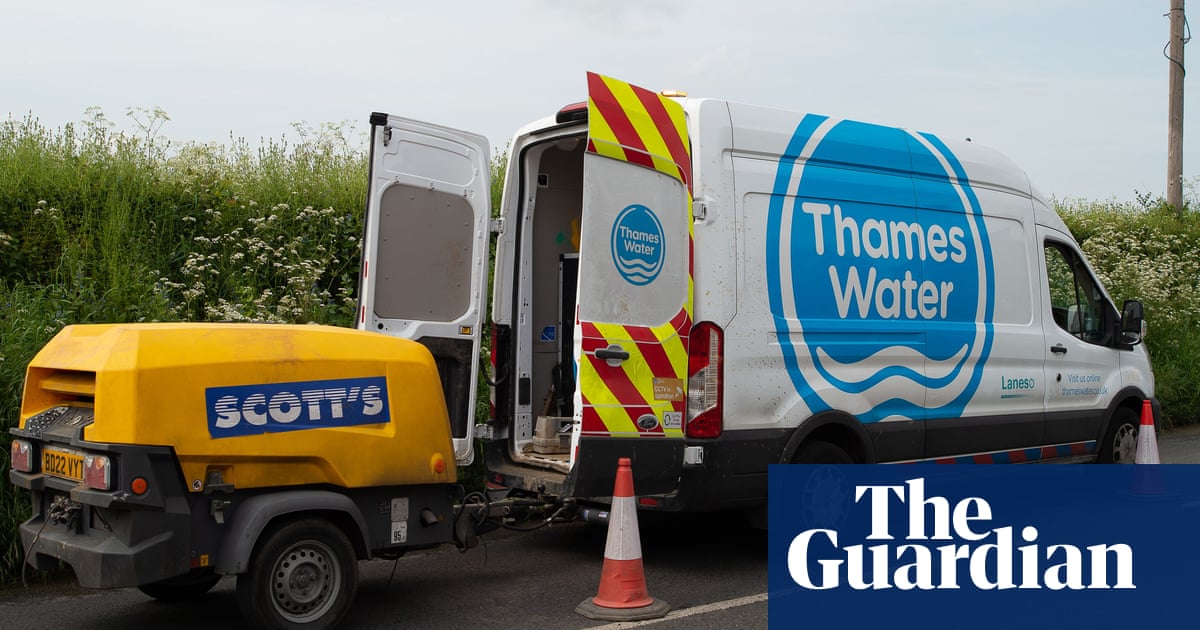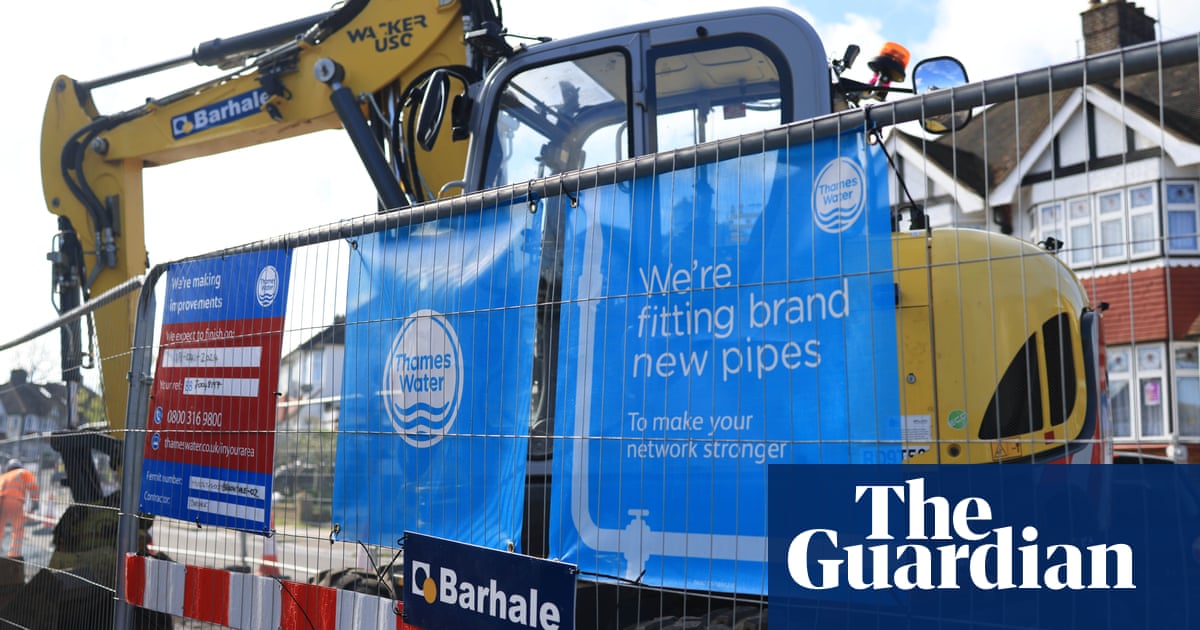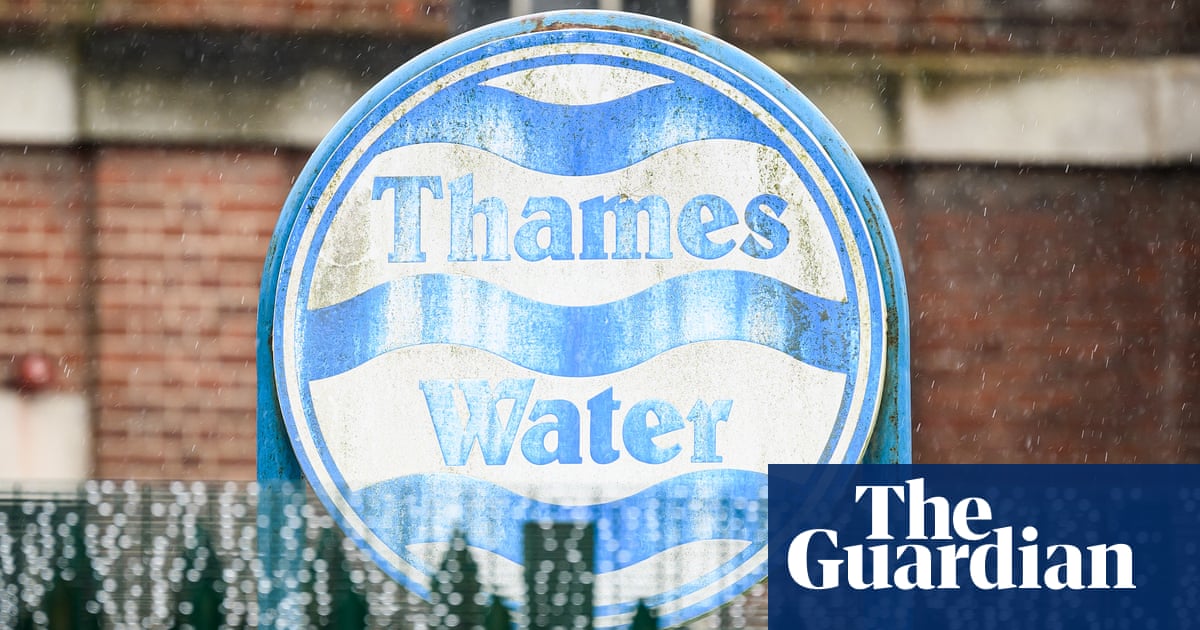
A bond issued by Thames Water’s parent company has fallen to record lows as the embattled company scrambles to secure its future, and the government signalled it is “ready to step in if necessary”.
The £400m bond, issued by the water supplier’s parent company, Kemble, has slumped to only 14.4p after shareholders indicated that they were unwilling to inject further funds into the heavily indebted utility company.
The group of shareholders had been due to pump in £500m by the end of March but refused to and indicated they were even willing to write off £5bn of investment amid a standoff with the industry regulator Ofwat over Thames’s turnaround plan.
The fall in the value of Kemble’s debt underlines investor uncertainty over the company’s future, in an industry where private companies have been loaded with debt since privatisation in 1989.
The bond, which matures in 2026, has fallen more than 80% over the last year, and halved to only 12.7p after the shareholder update, before lifting slightly to 14.4p.
The shareholders have hired advisers at the restructuring specialist Alvarez & Marsal to examine its options with Kemble’s creditors, which include bondholders and bank lenders. Meanwhile, Thames is also working with the consultancy Teneo and bankers at Rothschild over restructuring and financing options.
Kemble is expected to try to persuade its lenders to agree to a debt for equity swap.
Kemble was scheduled to repay £190m of debt by the end of April but said on Thursday it would not be able hit the deadline. Sources said a “standstill” agreement on the repayment was likely.
Thames bosses have said that the ringfenced water company, which serves 16 million customers, will continue to operate unaffected even if Kemble collapses. The company has said it has £2.4bn of funds on hand and can continue to operate for 15 months.
The company is lobbying government to raise bills by as much as 40%, as well as to allow it to pay dividends up to Kemble and to receive lower environmental fines.
However, the government has prepared contingency plans for Thames’s collapse and the company could be temporarily renationalised as it faces scrutiny over its creaking finances, ageing infrastructure and poor record on sewage dumping.
Sir Robert Goodwill, the chair of the environment, food and rural affairs select committee, said on Tuesday that the government was poised to step in if it continued to fail its customers.
The Conservative MP for Scarborough and Whitby told BBC Radio 4’s Today programme: “I think the situation at Thames (Water) is still of considerable concern. They are around about 80% geared – that is like having an 80% mortgage on your house.
“We need to ensure this company does get itself on to an even keel financially so we can move forward, but the government is ready to step in if necessary.”
He added: “The primary role of the government is first of all to protect customers, and secondly to protect the environment.
“I think we all realise that we need more investment in cleaning up our water now that we are testing those outpours and know what is going on.”
On the funding for such a clean-up operation, Goodwill said: “We do need more investment but that should not be done in a way that allows these companies to get away with the irresponsible way that many of them have been run in the past.”
Analysts at RBC said: “Resolving the Thames Water issue will be highly important for the sector as a whole. We don’t currently have visibility on when we would see clarity on this issue.
“However, the situation does present a significant challenge to both the government and the regulator given Thames’s position as the biggest water company in the sector.”
Kemble has been contacted for comment.






